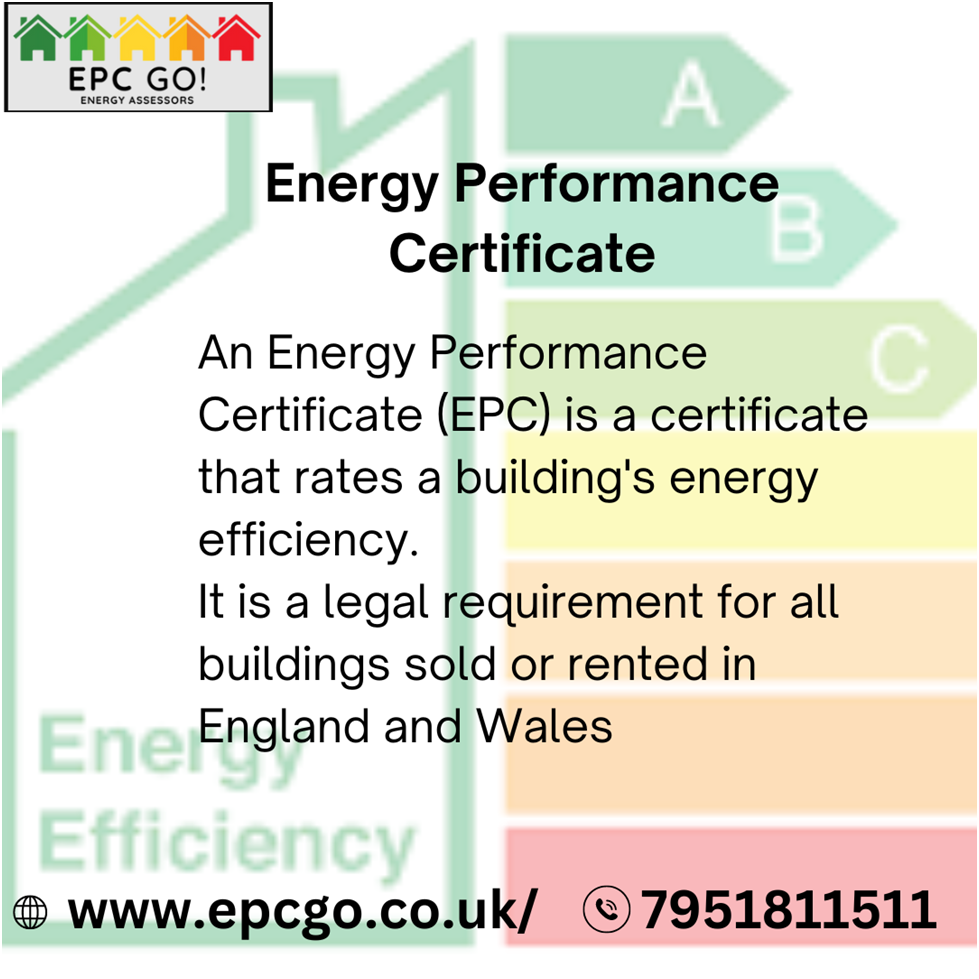The Future of Energy Performance Certificates in Brentwood
The
energy efficiency of buildings has become a crucial factor in today's
ecologically aware world. In order to evaluate and enhance a building's energy
performance and guarantee that it is built and maintained sustainably, energy
performance certificates are essential. This in-depth book explores the nuances
of Energy Performance
Certificates, equipping you with the knowledge necessary to make
educated decisions regarding the energy efficiency of your house. A document
called an energy performance certificate evaluates a building's energy
efficiency.
It
assigns a grade ranging from highest efficiency to lowest efficiency) according
to the energy usage and carbon dioxide emissions of the building. Many nations
need Energy Performance Certificates for the sale or rental of residential and
commercial properties. By increasing public knowledge of a building's energy
performance, this certificate can motivate developers, landlords, and
homeowners to implement energy-saving practices.
EPCs
reduce greenhouse gas emissions and contribute to climate change mitigation by
encouraging energy efficiency. Based on their energy preferences and financial
constraints, purchasers and tenants can make well-informed decisions by using
the useful information that energy performance certificates offer about a home.
Understanding Energy Performance Certificates
A
standardized certification called an Energy Performance Certificate assesses a
building's energy efficiency. The property is usually rated on a scale of A to
G, where A represents the highest energy efficiency and G represents the
lowest. An evaluation that considers a number of variables, such as insulation,
heating systems, lighting, and ventilation, results in the certificate.
The
promotion of environmental responsibility is one of the main advantages of Energy
Performance Certificates. Individuals and organizations can reduce their carbon
footprints by making educated decisions by evaluating and revealing a
property's energy efficiency. A home owner can benefit from high energy
efficiency while both lessening their influence on the environment and their
energy costs.
Obtaining
an Energy Performance Certificate is not only optional; it is required by law
in certain places. Governments everywhere are realizing how critical it is to
control and enhance building energy efficiency. house owners are therefore
frequently required to get an EPC before renting or selling a house. It is
crucial to comprehend and abide by these rules in order to promote a
sustainable culture as well as to prevent legal issues.
The Future of Energy Performance Certificates
EPC
Brentwood is always changing to
keep up with the latest developments in building standards and energy-efficient
technology. The function of EPCs is expected to grow as environmental concerns
grow, which might have an effect on property values and spur further innovation
in sustainable building techniques. Energy efficiency and climate change
mitigation are greatly aided by these energy performance certificates.
Landlords,
tenants, and legislators may all make decisions that lead to a more sustainable
future by being aware of the importance and ramifications of Energy Performance
Certificates (EPCs). EPCs are required by law to be given to prospective
renters or purchases by landlords and sellers. There may be fines or penalties
for breaking the EPC regulations. These
certificates enable property owners to do more than just comply with
regulations; they also raise property values and enable environmentally
conscious decision-making.
Governments,
corporations, and individuals are placing a greater emphasis on sustainability,
and Energy Performance Certificates play a crucial role in promoting a built
environment that is both sustainable and profitable. It's a pledge to a more sustainable
and environmentally friendly future, not just a credential.
How an Energy Performance Certificate Is Obtained
Typically,
certified energy assessors enrolled with an approved program create EPC Brentwood. The following steps are
involved in getting an EPC:
Evaluation
The
assessor will pay the property a visit to evaluate its energy-related elements,
such as lighting, heating, and insulation.
Calculation
The
assessor will determine possible energy-saving measures and the property's
energy performance rating using specialist software.
Certification
An
EPC will be issued by the assessor and registered with the appropriate
authority.





Comments
Post a Comment